In the ever-expanding world of quick-fix health supplements, it’s easy to find wild claims and dubious research. Although even the best greens powders aren’t a replacement for good old-fashioned fruits and veggies, their impressive vitamin and mineral counts, antioxidants, and adaptogenics may earn a place in your diet. Our experts caution that the research on these supplements is in its infancy, but some studies indicate they could potentially help lower blood pressure, improve heart health, and boost the immune system. (1)(2)(3)(4)
Two of the most recognizable powders on the market (thanks, social media algorithms) are likely familiar names — Jocko Greens and AG1 (aka Athletic Greens). While it may seem like these popular greens powders are the magic potion for avoiding actual veggies, what exactly do they have to offer? After testing out nearly 40 greens powders, we know what separates the too-good-to-be-true’s from the best-for-you’s. Check out what our team of registered dietitian nutritionists, certified nutrition coaches, and overall health nuts have to say in our head-to-head showdown of Jocko Greens vs. Athletic Greens.
What is Jocko Greens?

This greens powder offers both a vegetable blend and a fruit blend. Plus, you'll find ashwagandha and a blend of probiotics.
Jocko Greens is the greens powder offering from Jocko Fuel, the health and performance supplement company founded by retired U.S. Navy Seal Jocko Willink. Greens powder supplements like Jocko Greens are designed to help supplement important micronutrients that many of us struggle to incorporate into our diets. But with so many vitamins and minerals (and proprietary greens blends of vitamins and minerals), examining the ingredient list of any greens powder can be an exhausting task.
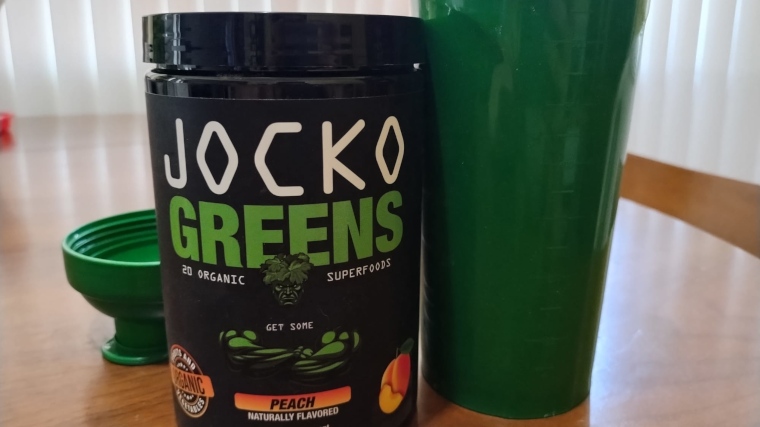
When we had our expert reviewer and registered dietitian nutritionist Chelsea Rae Bourgeois scrutinize the label, she points out that, unlike some others in this crowded market, what you see is what you get. “While I’m usually wary of greens powders, I appreciate that Jocko is transparent with their ingredient blends,” she says. “They include the amount of each ingredient in their blends, giving customers a clear picture of what they’re buying. I also appreciate that it’s free from added sugars.”
One key inclusion in its formula is the handful of adaptogens — ashwagandha, milk thistle, and rhodiola — that caught the eye of certified nutrition coach Jesse Zucker when they checked it out for themself. “These are advertised to increase your energy, and ashwagandha is often taken to promote relaxation,” they say. “Adaptogens are essentially substances that help your body return to homeostasis from what you’re lacking — so if you’re tired, they could help you feel more alert. If stress levels are too high, they may help bring them down.” (5)
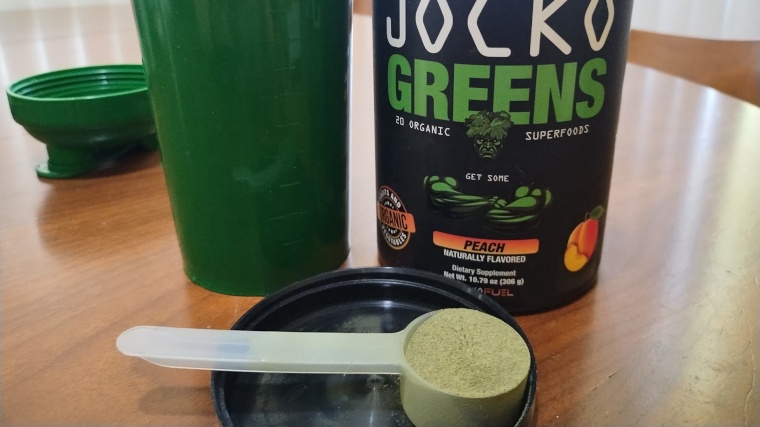
Many greens powders only come in an unflavored — but really, grass-flavored — option, but Jocko Greens offers Pineapple Coconut and Peach. Not only can these tasty flavors make it a bit more palatable, but they use the natural sweeteners cane sugar and monk fruit extract. “I know it’s not everyone’s favorite, but for me, the Peach flavor is pretty good,” says certified nutrition coach and BarBend editorial team member Alex Polish. “I think I’m sensitive to artificial sweeteners (they’re usually way too strong for me), so this one tastes a lot milder than most greens powders for me.”
Read our full Jocko Greens Review.
What is Athletic Greens?
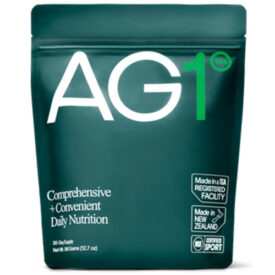
When I said that greens powders labels can be a lengthy read, I was thinking of social media and wellness podcast darling AG1. With over 75 whole food-sourced ingredients, this do-it-all supplement can support a wide range of positive health outcomes, like improved gut health, hormone function, immunity, liver function, increased energy, and more.
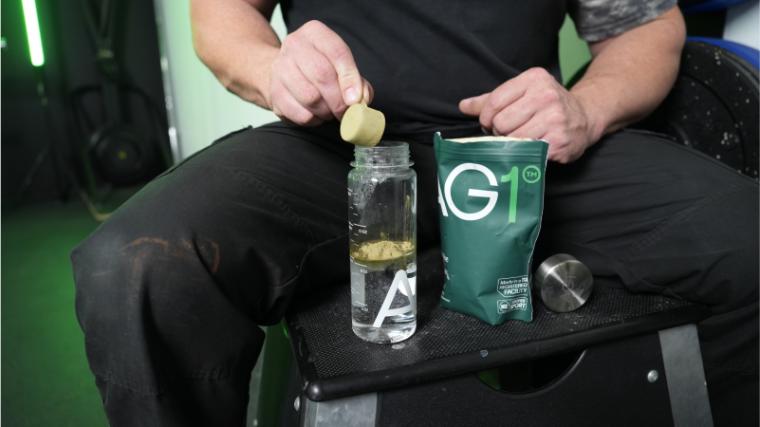
“AG1’s lineup has so many quality ingredients — vitamins, probiotics, minerals, adaptogens — I can’t really see a downside to using it,” says one member of our team, a certified personal trainer. In fact, the combination of ingredients aims to serve as all of the following:
- Multivitamin
- Multimineral
- Stress adaptogens
- Prebiotics
- Probiotics
- Antioxidants
- Superfoods
- Functional mushrooms
- Digestive enzymes
Just as impressive may be what it lacks — artificial flavors, sweeteners, colors, preservatives, and GMOs. AG1 has also been tested by independent labs for impurities like heavy metals, pathogens, mold, and yeasts. Plus, competitive athletes can breathe easier knowing it is NSF Certified for Sport, so it is free of banned substances.
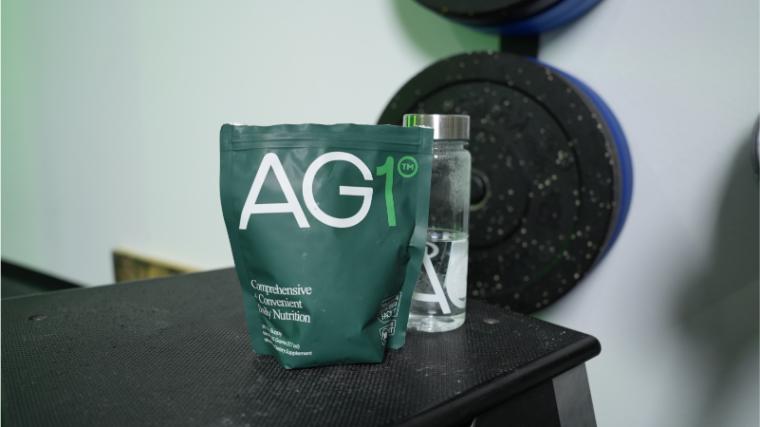
“The flavor is a bit subtle, but it is easily the best-tasting greens powder I’ve had,” says another of our testers. Rather than compromise its formulation with artificial sweeteners like sucralose or aspartame, each serving of AG1 contains less than one gram of sugar derived from stevia leaves. “It’s tough to make these powders taste like anything, so using natural sources of pineapple and vanilla is really going the extra mile,” they add.
For our expert reviewer, Chelsea Rae Bourgeois, RDN, AG1’s formula makes it a standout in a crowded market, but she notes that it comes at a steep cost. “AG1 Athletic Greens provide a concentrated source of nutrients, along with beneficial probiotics,” she says. “[It] gets a 3 out of 5 for its formulation, with major deductions for its proprietary blends and cost. For many, the cost doesn’t match the purported benefits.”
Read our full Athletic Greens AG1 Review.
Jocko Greens vs. Athletic Greens At a Glance
For a look at the cold, hard facts, check out the key stats for both of these greens powder supplements.
| Jocko Greens | Athletic Greens | |
| Price | $49.99 | $99 |
| Price Per Serving | $1.66 | $3.30 |
| Servings Per Container | 30 | 30 |
| Third-Party Testing | Yes | Yes |
| Standout Ingredients | Organic vegetable blend, organic fruit blend, rhodiola extract, ashwagandha extract, milk thistle extract, 9 billion CFUs probiotics blend (11 strains) | Superfood complex, herb & antioxidant blend, digestive enzymes, mushroom blend, probiotics (7.2 billion CFU from 2 strains) |
| Nutrition Per Scoop | 30 calories, 0.5g fat, 6g carbs, 2g protein, 1g fiber, 2g sugar, 50mg calcium, 3mg iron, 40mg sodium, 140mg potassium | 50 calories, 6g carbs, 2g fiber, <1g sugar, 2g protein, fats not disclosed |
| Sweeteners Used | Fermented cane sugar, monk fruit extract | Stevia |
| Available Flavors | Pineapple Coconut, Peach | Unflavored |
Jocko Greens vs. Athletic Greens: The Nitty Gritty
As two of the more popular greens supplements out there, Jocko Greens and Athletic Greens both have plenty of health benefits to offer. To get a better sense of which might be the best fit for whom, I’ve tapped registered dietitian nutritionist Chelsea Rae Bourgeois and certified nutrition coach Jesse Zucker to dive a little deeper.
Pricing
Most greens powders will run you about $1 to $1.50 per serving. For a bit more context, two others that we like, Transparent Labs Prebiotic Greens and Nested Naturals Super Greens, cost $1.53 and $1.07 per serving, respectively. So right off the bat, both Jocko Greens and AG1 exceed the average price of a greens powder.
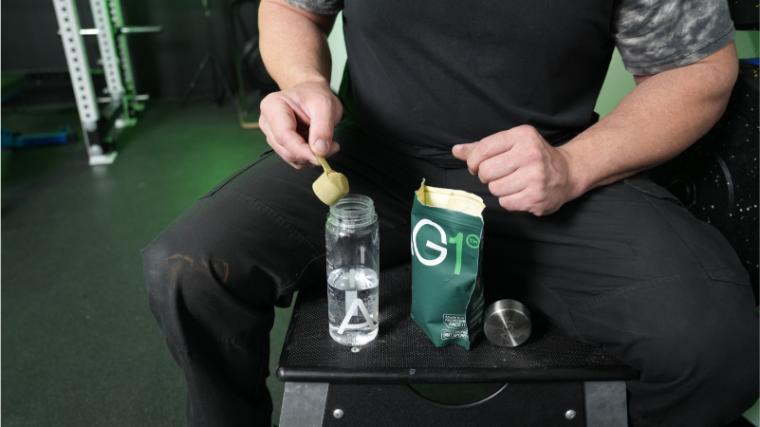
While both offer a slight discount with a subscription, when stacked up head-to-head, it’s not even close. At $1.66 per serving ($1.50 if you subscribe), Jocko Greens just eclipses the typical range we see among greens powders. On the other hand, as Bourgeois highlights, AG1’s $3.30 per serving ($2.63 with a subscription) pulverizes that average range like a finely-grained, well, greens powder.
“The cost is the biggest turn-off for me with this product,” she says. “AG1 Athletic Greens may help boost your intake of important nutrients, but it definitely comes at a cost — and the cost ain’t cheap! On a budget, I’d be more inclined to add more nutrient-dense whole foods to my diet to obtain the same effects.”
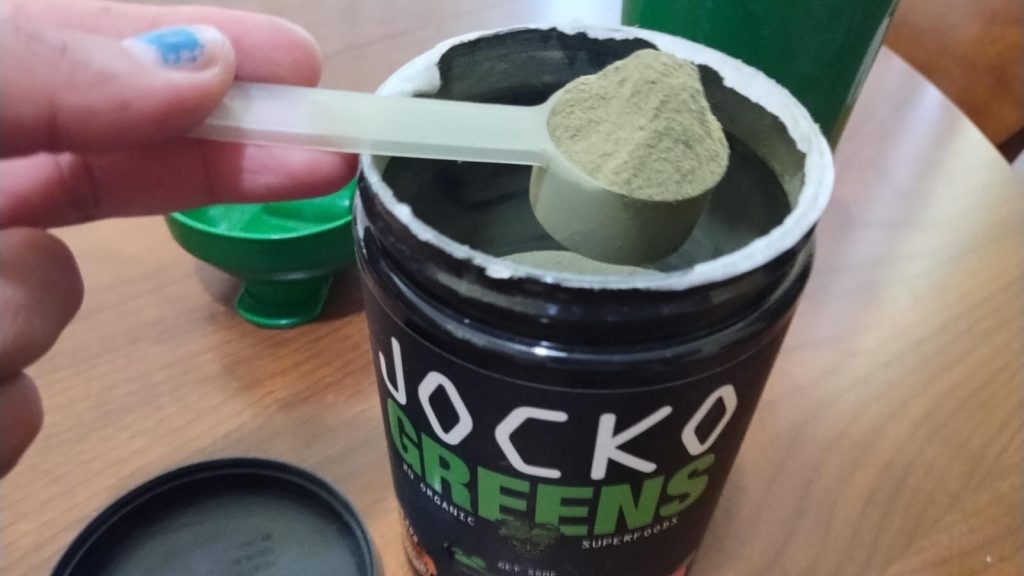
A 30-serving container of Jocko Greens rings up at $49.99, just half the price of the equivalent AG1 pouch. That $100 monthly expense might be the end of the discussion for most, although you can reduce the cost of a single container to $79 ($2.63 per serving) by signing up for a subscription. That 20% price cut bests the 10% you save when subscribing to Jocko Greens ($1.50 per serving), but the bottom line is that Jocko Greens is way more affordable.
The winner: Jocko Greens
Third-Party Testing
Because the FDA doesn’t approve health or performance supplements before they hit the market, seeing some type of independent verification of the formula is vital. The best pre-workout supplements, protein powders, and creatine are often tested for banned substances to give competitive athletes peace of mind, as well.
A likely culprit of AG1’s high price is the amount of testing that batch goes through. It’s tested for nearly 1,000 impurities, like heavy metals, pesticides, and herbicides. Although, it isn’t clear whether this testing is done independently or by AG1. It is, however, stamped with the NSF Certified for Sport seal of approval, which means it’s free of nearly 300 substances that are banned in sports.

While NSF certification is nothing to sneeze at, AG1 includes several proprietary blends, so we can’t know for sure exactly how much of each ingredient is included within each one. We would have liked to see the formula itself, but seeing that NSF stamp on the label is enough for our testers to score its third-party testing 5 out of 5. For Bourgeois, it also added a bit of reassurance. “Since the research behind greens powders is lacking, I like that this product is third-party tested for safety,” she says.
The Jocko Greens story is a bit murkier. According to the Jocko Fuel website, Jocko Greens has been third-party tested, but as Zucker notes, there is no information on which lab performed the testing or verified those statements. “They say their products and ingredients come from GMP-certified facilities and FDA-licensed manufacturers, which is great,” they say. “They also state that a third-party lab verified each of these ingredients before making their supplements, [but] knowing the lab’s name and the report results would be better since it’s something other companies do. I’ll give it a 3 out of 5 for the facilities used in production.”
The Winner: Athletic Greens
Standout Ingredients
For any of the best supplements for weight loss, building muscle, or overall health that Bourgeois and Zucker examine, the inclusion of proprietary blends is a big deal. Business-wise, we get it. Publishing exact amounts of each ingredient would make it easier for another company to replicate. But for the consumer (the person literally consuming it), proprietary blends make it impossible to know exactly how much of each ingredient is present. In this case, it’s pretty simple. AG1 has them and Jocko Greens doesn’t.
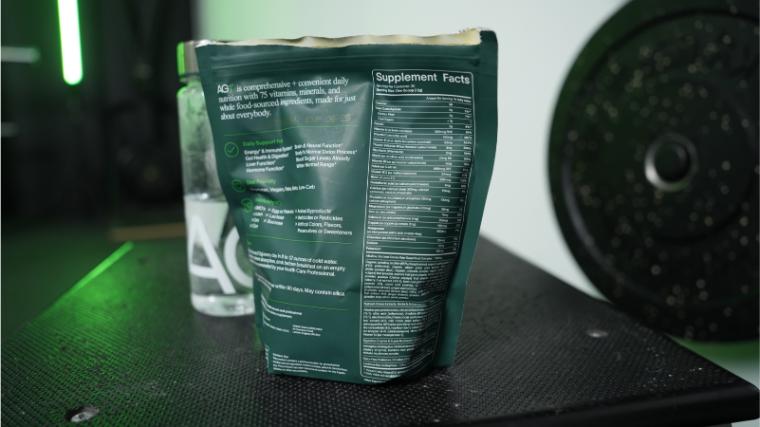
What we can see, however, is pretty impressive in both of these powders. Both contain blends loaded with whole food ingredients, like organic spirulina, wheatgrass, and chlorella. “Spirulina (blue-green algae) is a green superfood that has strong antioxidant properties,” Zucker says. “Wheatgrass is a grass that also has antioxidant and anti-inflammatory properties. Chlorella is another type of antioxidant-rich algae high in iron.” (6)(7)(8)
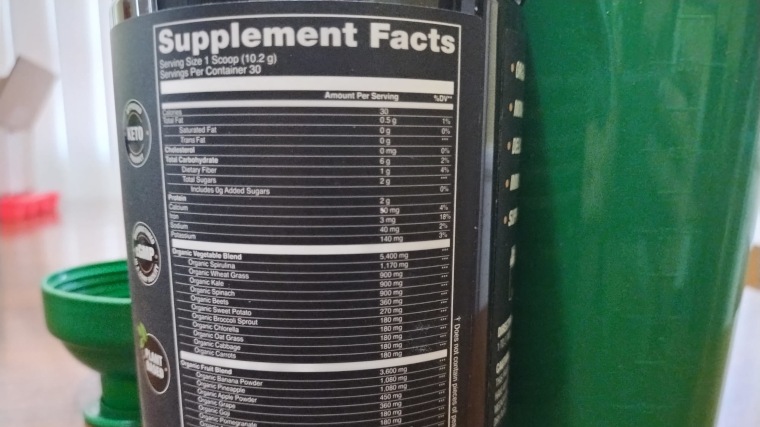
Another highlight for both is the inclusion of adaptogens, like ashwagandha, milk thistle, and rhodiola. While more research is needed on these ingredients, they are thought to boost energy levels and focus. (5) Both also include digestion-supporting probiotics. “Jocko Greens has 9 billion CFUs of probiotics, which help balance gut bacteria and can boost digestive health,” Zucker notes. ‘They’re a good addition to this product, where you’re ingesting many raw ingredients at once.” (9)
AG1’s 7.2 billion CFUs from two strains — Lactobacillus acidophilus and Bifidobacterium bifidum — may similarly improve gut health and aid digestion. It also includes prebiotics and digestive enzymes, whereas Jocko Greens only contains probiotics. (10)(11)
The winner: It’s a tie.
Nutrition Per Scoop
With so many ingredients in these greens powders, it can be easy to get overwhelmed. First, let’s start with your macronutrients. Here’s a quick per-serving breakdown to help make counting macros easier.
Jocko Greens:
- 30 calories
- 6g carbs (1g fiber, 2g sugar)
- 0.5g fat
- 2g protein
AG1:
- 50 calories
- 6g carbs (2g fiber, <1g sugar)
- Fat content not disclosed
- 2g protein
Beyond those key figures, Bourgeois likes what she sees from AG1, scoring its formulation 3 out of 5. But after factoring in its eye-popping price per serving, she has some reservations. “Unfortunately, AG1 Athletic Greens is packed with proprietary blends, so you don’t really even know what you’re spending your money on,” she notes.
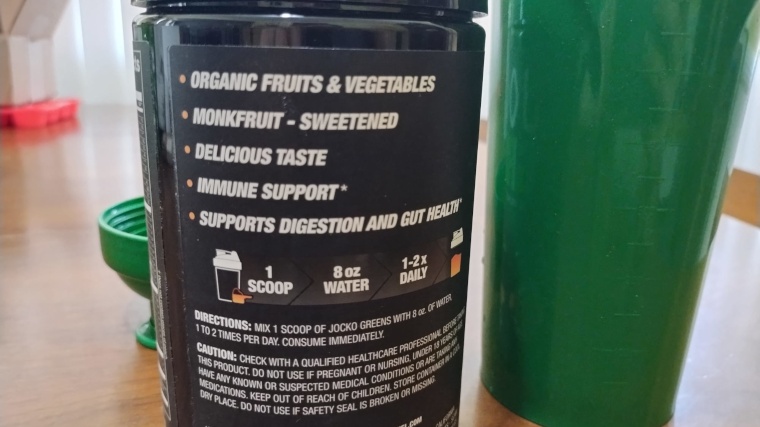
Now, while the amounts of the ingredients in its four blends — Alkaline, Nutrient-Dense, Raw Superfood Complex; Nutrient-Dense Natural Extracts, Herbs, & Antioxidants; Digestive Enzyme & Super Mushroom Complex; Dairy-Free Probiotics — are obscured, the exact amounts of 26 vitamins, minerals, and macronutrients are listed on the label.
On its own, AG1 might well be one of the best multivitamin supplements on the market. In each serving, you’re getting over 100% of your daily recommended value of vitamin A, vitamin C, vitamin E, and some B vitamins. The mineral content also includes solid dosages of calcium, magnesium, sodium, and potassium.
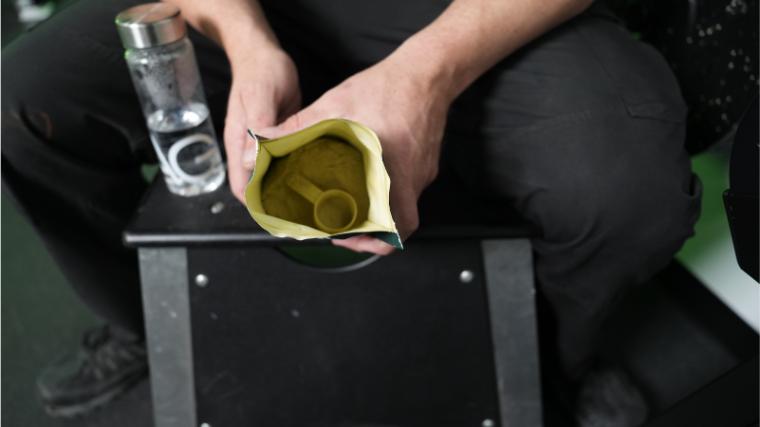
So, what about the nutrition content for Jocko Greens? That’s exactly what Bourgeois was wondering, too. “Jocko Greens Powder seems pretty standard when it comes to greens powders,” she says. “It includes a few impressive ingredients in small amounts, but the nutrition facts are a little underwhelming. Other than its macronutrients, Jocko Greens Powder only provides the nutrition facts for potassium, sodium, iron, and calcium provided in the product.”
“Each serving provides 18% of the daily value for iron and just 2 to 4% for the remaining nutrients,” she adds, rating its formula 2.5 out of 5. “While the blends in Jocko Greens Powder may include small amounts of foods that you might not typically eat, the nutrition facts do not indicate they’re significantly contributing to your daily nutrient needs. There are many other more cost-effective and enjoyable ways to get these nutrients (and in higher amounts) through whole foods.”
The winner: Athletic Greens
Sweeteners Used
Greens powders aren’t typically regarded as tasty additions to your diet and most only come in the ever-appealing “unflavored” variety. This is the case for AG1, although it does use stevia and the, according to the company, “natural essence of pineapple core and vanilla bean.”
[Related: Is Stevia the Most Gut-Healthy Sweetener?]
Stevia has been known to leave a strong aftertaste or even cause digestive issues for some people. Jocko Greens, on the other hand, utilizes fermented cane sugar and the natural sweetener monk fruit extract to achieve its two flavors — Pineapple Coconut and Peach.
The winner: It’s a tie.
Available Flavors
While technically AG1 is not flavored, one of our testers definitely picked up on the tropical feel the brand is aiming for. “It doesn’t bother me that there aren’t flavor options for Athletic Greens because the grassiness is pretty mild,” they say. “But I will say, I detect notes of pineapple and vanilla.”

We haven’t had the chance to try out the Pineapple Coconut variety from Jocko Greens, but the Peach was a bit of a lightning rod for two members of our team. “I feel so bad saying this, but the Peach flavor is just not something I can drink all the way through,” one says. “It’s just too overpowering.” However, certified personal trainer and nutrition coach Alex Polish feels differently. “I do get the Peach flavor, which is also unusual (for me, most powders taste generically sweet rather than like whatever they’re advertising),” they say. “So, an impressive 4 out of 5 for me.”
The Winner: Jocko Greens
Taste
First off, greens powders don’t offer the wide-ranging flavors of the best protein powders or creatine supplements. While it might technically be “unflavored,” AG1 earns a 4.5 out of 5 for taste from two members of our team — both certified personal trainers. “With so many unsweetened, unadorned greens powders out there that taste like literal dirt, I like AG1’s pineapple and vanilla notes that border on tropical,” says BarBend tester Nick English. “However, I still get a bit too much of an earthy and grassy taste.”

“AG1 certainly has a ‘healthy’ taste, but it’s superior to even other flavored powders,” another tester says. “You still need to temper expectations, but there’s a decent amount of sweetness to it thanks to the stevia and natural pineapple and vanilla flavoring.”
The Peach flavor of Jocko Greens earnesa 4 out of 5 from Polish, but another of our testers are not so impressed. “I hate wasting food — or supplements, as it were — but I always have to dump this out halfway through drinking it,” they say, scoring this option just 2 out of 5. “You can tell that they’re trying to mask the earthy, leafy flavors — but it’s way too much overcompensation for me.”
The Winner: Athletic Greens
Solubility
In life and in greens powders, setting expectations is important. Even the best shaker bottles can struggle to completely mix a greens powder, so the fact that both Jocko Greens and AG1 earned scores of 4 out of 5 from our team was noteworthy. We just suggest giving it a shake before each sip.
“The good thing here is that it mixes right up with a shaker, or even by stirring it in a glass,” one tester says of Jocko Greens. “It does settle a bit at the bottom if you leave it out, but a quick shake or stir before each drink should take care of that easily.”
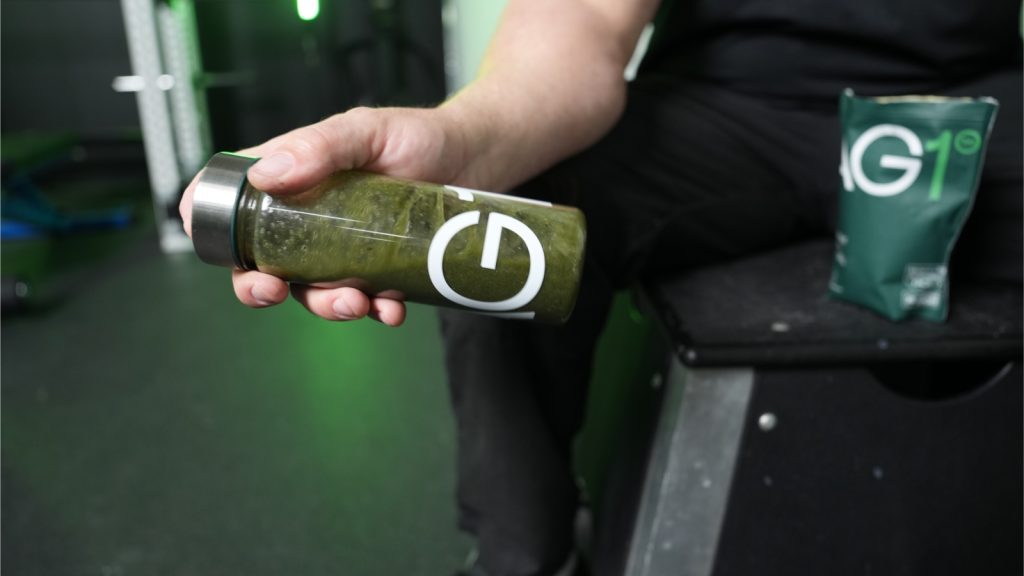
“This mixes like many other greens powders I’ve tried — pretty well. I use a shaker cup and it just takes a few strong shakes,” Polish adds. “If you’re taking your time drinking it and letting it sit instead of just downing it, I’d recommend giving it an extra shake before each sip”
Our team relayed a similar story for AG1. “It’ll settle if you let it sit for a while, but generally, I drink mine in one sitting so it’s not an issue,” our tester notes. “Be prepared for just a little grit, but you won’t get any clumps with a shaker bottle, and it goes down nice and easy.”
The Winner: It’s a tie.
Effects
Even after hands-on testing or extended use, it can be difficult to pinpoint the acute effects of supplements like greens superfood powders. With such robust lineups for vitamins and minerals, it’s easy to feel good about beefing up the micronutrient count with a daily greens powder scoop. But as Bourgeois explains, she would like to see a bit more scientific evidence regarding their efficacy.
[Related: Micronutrients for Athletes]
“There’s a lot of mystery surrounding the hype of greens powders,” she says. “You might be surprised to find that a greens powder only adds more to an already met need. A dietitian can help you decide if a greens powder is necessary.”
After trying both Jocko Greens and AG1, our team hasn’t noticed any immediate side effects. The only note that one tester relayed about Jocko Greens is most likely applicable across many greens powders. “I wouldn’t advise taking this on an empty stomach,” they note. “It’s not bad, but I’ve had a bit of bloating or a stomach ache when I had this and nothing else in my system.”
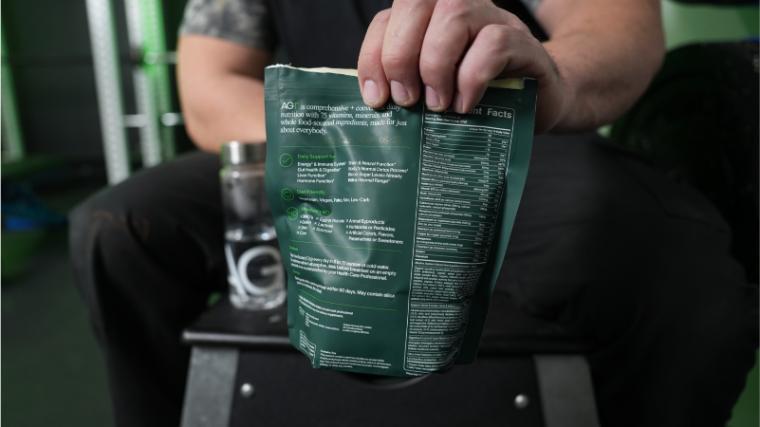
One member of our team who tried Athletic Greens appreciated the positive effect of adding vitamins and minerals to their diet on their mental well-being. “Nothing felt overly negative and nothing felt overly positive,” they say. “That’s standard for this kind of dietary supplement, but it did give me a lot of comfort to know that I’m getting more micronutrients than I otherwise might!”
“There’s no real downside here because it’s packed with all the right stuff — except the price,” another tester adds. “But if you can afford it, it’s a 5 out of 5 from me.”
The Winner: It’s a tie.
Jocko Greens vs. Athletic Greens FAQ
Is Jocko Greens the same as AG1?
Both are gluten-free and share some similarities in their micronutrient content. AG1 includes four proprietary blends while Jocko Greens contains none. AG1 does include prebiotics and digestive enzymes, but its price per serving is roughly double Jocko Greens. But anyone looking for a non-GMO greens powder should go with AG1.
What greens are better than Athletic Greens?
AG1 is our top overall pick among the nearly 40 plant-based greens powders that we have personally tested. Others that rate highly are Transparent Labs Prebiotic Greens and Ora Organic Greens.
Is Jocko Greens third-party tested for contaminants?
Jocko Fuel states that Jocko Greens has been third-party tested, but there are no details about which lab or organization performed the testing.
References
- Kechagia, M., Basoulis, D., Konstantopoulou, S., Dimitriadi, D., Gyftopoulou, K., Skarmoutsou, N., & Fakiri, E. M. (2013). Health benefits of probiotics: a review. ISRN nutrition, 2013, 481651.
- Zhang, J., Bateman, R., Metzger, S., & Lanigan, K. (2006). Taking nutritional supplements for three months reduced blood pressure but not blood lipid levels in students. Journal of chiropractic medicine, 5(2), 53–59.
- Zhang, J., Oxinos, G., & Maher, J. H. (2009). The effect of fruit and vegetable powder mix on hypertensive subjects: a pilot study. Journal of chiropractic medicine, 8(3), 101–106.
- Lorenzoni, G., Minto, C., Vecchio, M. G., Zec, S., Paolin, I., Lamprecht, M., Mestroni, L., & Gregori, D. (2019). Fruit and Vegetable Concentrate Supplementation and Cardiovascular Health: A Systematic Review from a Public Health Perspective. Journal of clinical medicine, 8(11), 1914.
- Todorova, V., Ivanov, K., Delattre, C., Nalbantova, V., Karcheva-Bahchevanska, D., & Ivanova, S. (2021). Plant Adaptogens-History and Future Perspectives. Nutrients, 13(8), 2861.
- Ku, C. S., Yang, Y., Park, Y., & Lee, J. (2013). Health benefits of blue-green algae: prevention of cardiovascular disease and nonalcoholic fatty liver disease. Journal of medicinal food, 16(2), 103–111.
- Gunjal, M., Kaur, J., Rasane, P., Singh, J., Kaur, S., Bakshi, M., Choudhary, R., Alina Marc, R., & Ercisli, S. (2024). Nutritional Significance of Wheatgrass: Cultivation Practices and Opportunities for its Processing and Preservation. Recent advances in food, nutrition & agriculture, 10.2174/012772574X275920231214053122. Advance online publication.
- Bito, T., Okumura, E., Fujishima, M., & Watanabe, F. (2020). Potential of Chlorella as a Dietary Supplement to Promote Human Health. Nutrients, 12(9), 2524.
- Williams N. T. (2010). Probiotics. American journal of health-system pharmacy : AJHP : official journal of the American Society of Health-System Pharmacists, 67(6), 449–458.
- Quigley E. M. M. (2019). Prebiotics and Probiotics in Digestive Health. Clinical gastroenterology and hepatology: The Official Clinical Practice Journal of the American Gastroenterological Association, 17(2), 333–344.
- Janciauskiene S. (2020). The Beneficial Effects of Antioxidants in Health And Diseases. Chronic obstructive pulmonary diseases (Miami, Fla.), 7(3), 182–202.